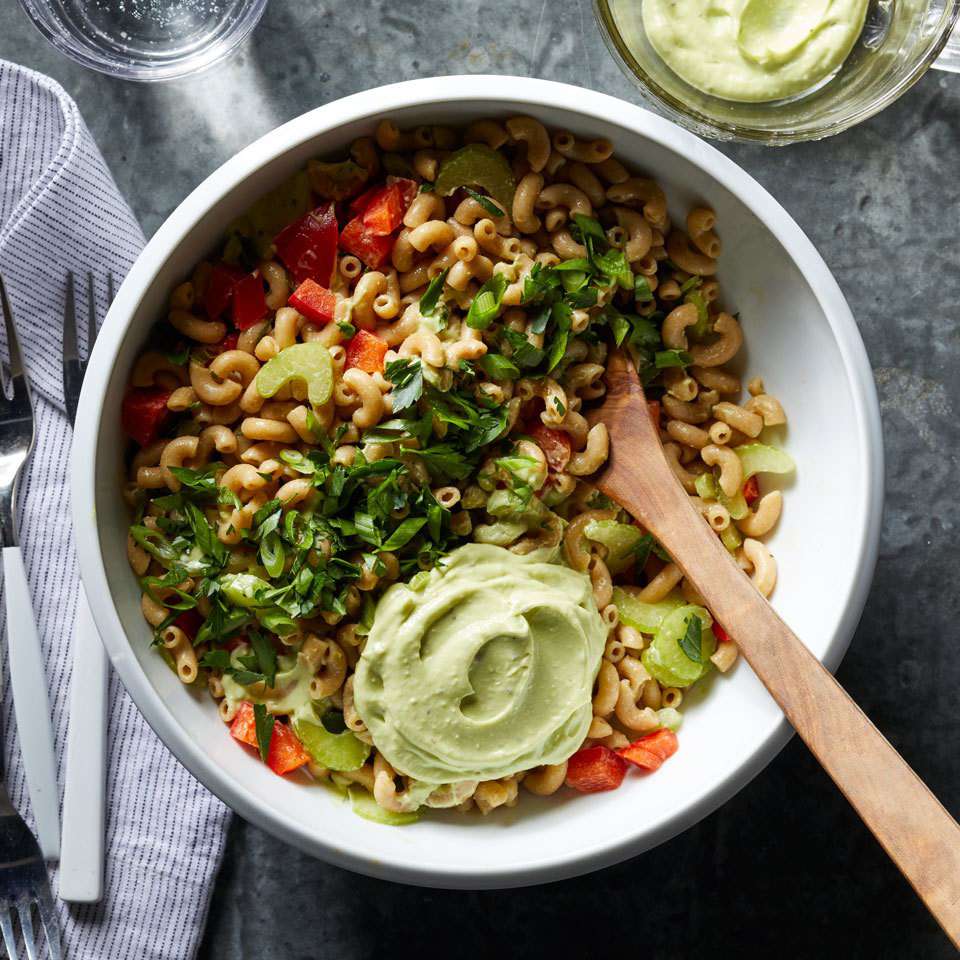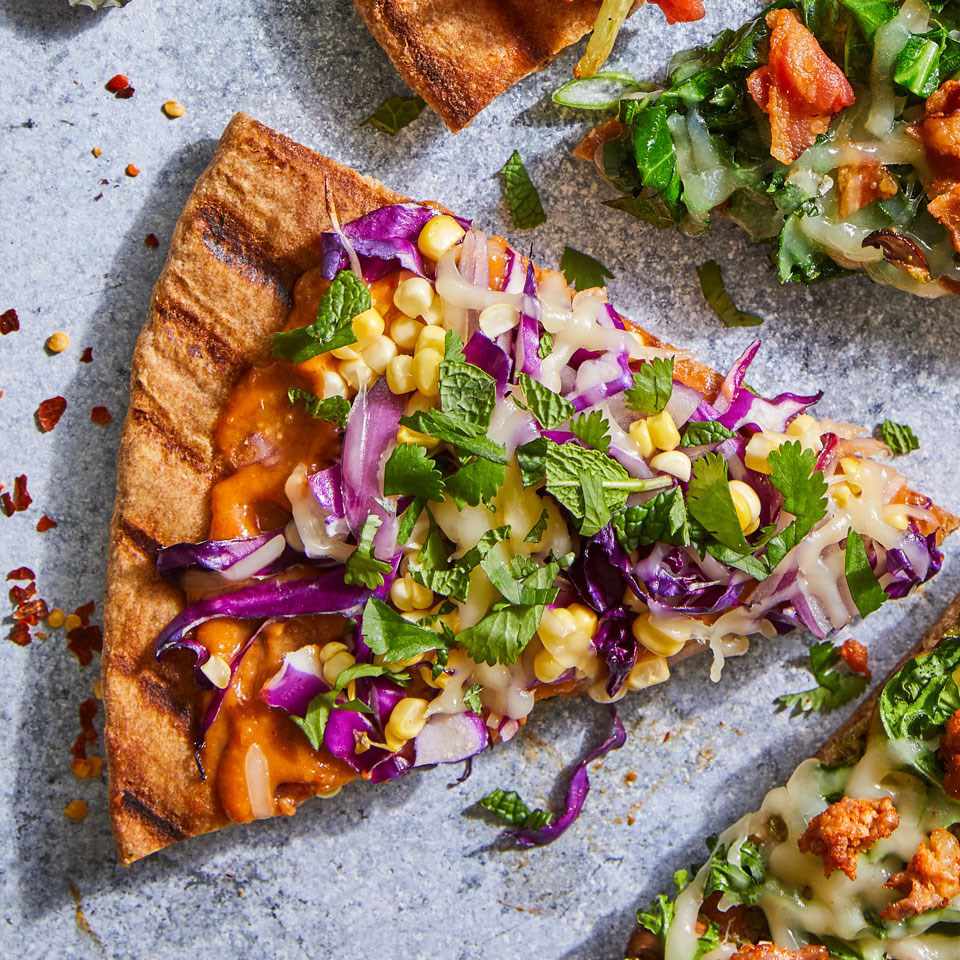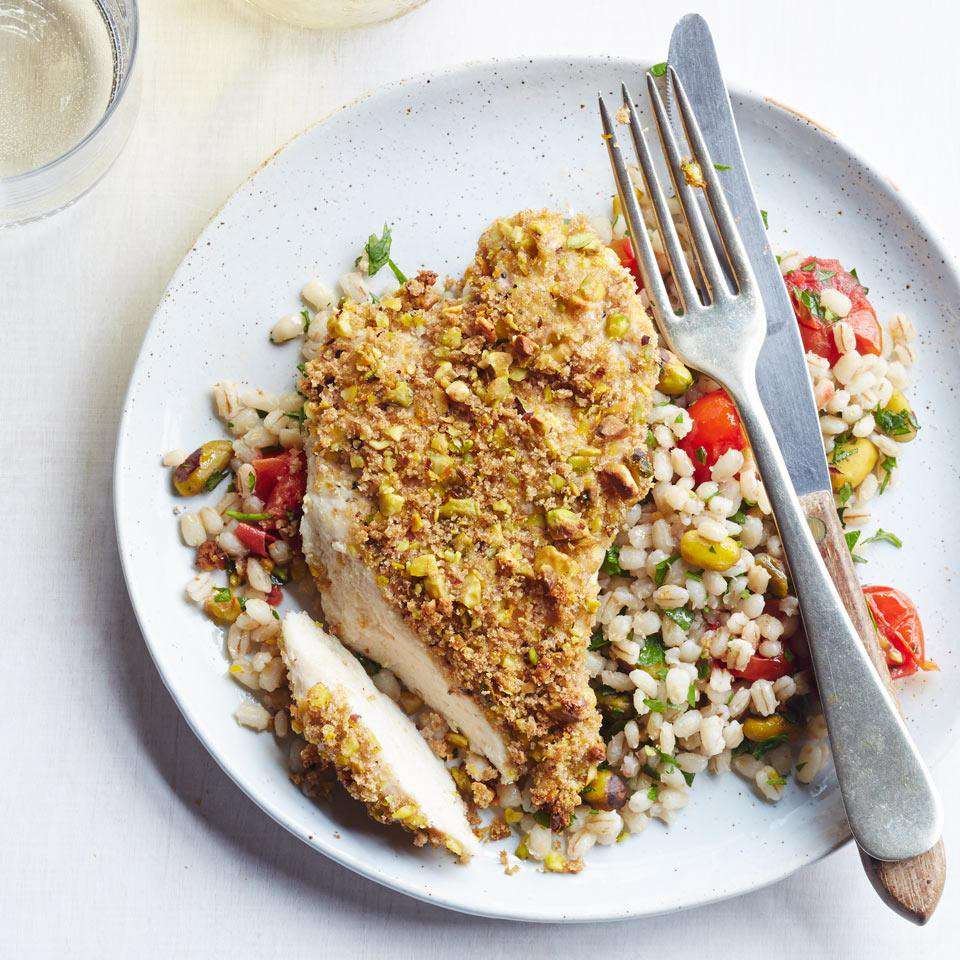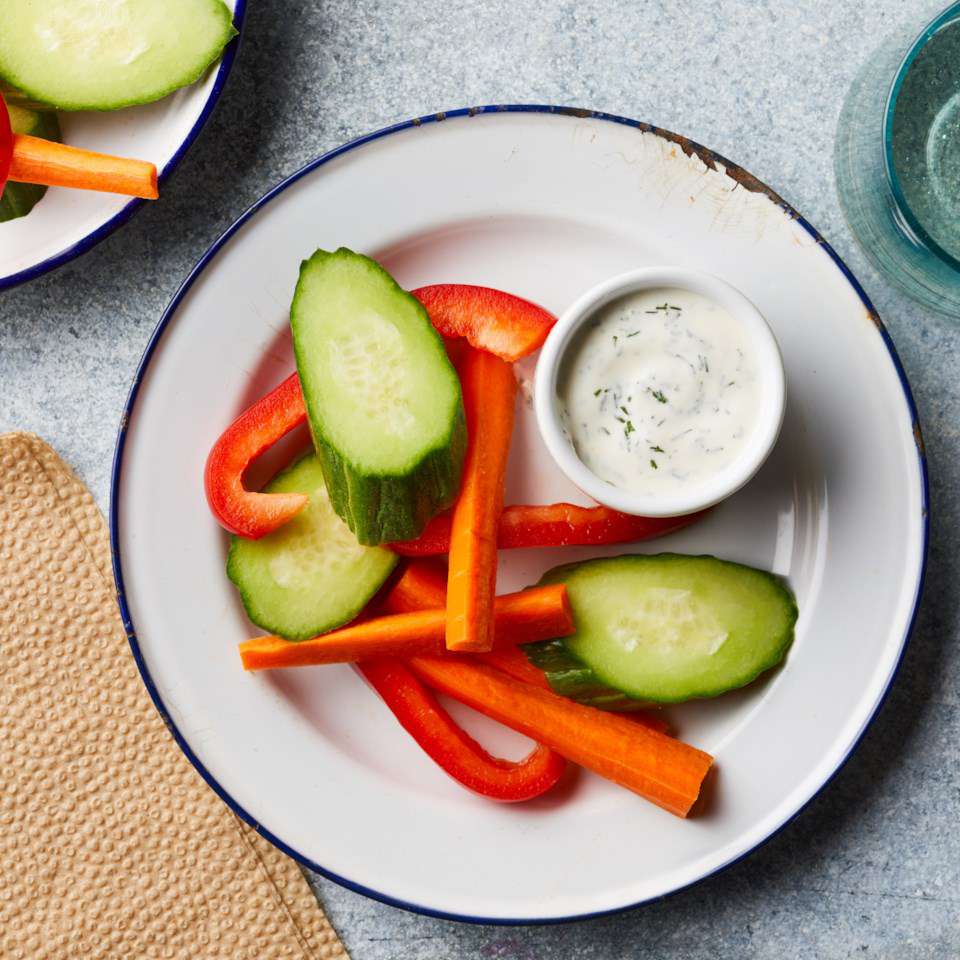Featured Recipe: Macaroni Salad with Creamy Avocado Dressing
"Calories in, calories out" for weight loss is now considered to be a little outdated and simplistic, and how many calories you should eat to lose weight or even maintain your current weight isn't entirely clear. To understand the nuances of losing 2 pounds per week (or losing any weight, really), you must first understand what influences how many calories you need in the first place.
Factors That Influence Your Calorie Needs
Featured Recipe: Thai Peanut & Herb Grilled Pizza
Calorie needs vary throughout your lifetime and are influenced by a variety of factors, including:
- activity level
- age
- pregnancy
- body composition
- illness and/or injury
- chronic health conditions, such as hypothyroidism
However, you cannot fully account for these factors when determining what your calorie needs are without first understanding basal metabolic rate, or BMR. In the simplest of terms, BMR is a measure of how many calories the body burns when you're at rest. To put it another way, this is how many calories your body needs to perform essential functions, such as breathing, pumping blood and digesting nutrients.
From there, the total number of calories required to maintain a current weight can be calculated based on your age, height, weight, sex and activity level. Many online calculators can help you determine your basal metabolic rate and total calorie needs, but this isn't an exact number, as Lainey Younkin, M.S., R.D.N., L.D.N., registered dietitian at Lainey Younkin Nutrition, explains. "Think about your calorie needs as a range, rather than one number. It's based on your activity level, and you don't do the same activities every day," she says. Additionally, it's important to remember that calorie needs are individualized, so no one number is going to work for everyone.
Are All Calories Created Equal?
Pictured Recipe: Spaghetti Squash Lasagna with Broccolini
Ask most registered dietitians, and the answer is a resounding no.
Yes, a calorie is a calorie in its most basic form, but humans don't eat calories in isolation. We eat food and the calories consumed as part of a meal or snack contain nutrients like protein, fat and carbohydrates.
Katie Andrews, M.S., R.D., founder of Wellness by Katie, explains that calories are simply measurements of energy like a watt or joule. "But they aren't what makes us feel full or satisfied," Andrews says.
It's true, research shows, that calories from certain foods like fruits, vegetables, whole grains and beans create a different biological response in the body than the same amount of calories from added sugars, such as sugar-sweetened beverages or candy. "While you can easily consume 2,000-or more-calories of candy or soda, you will be falling short on meeting all your key nutrition needs, particularly when it comes to fiber and fat, the two nutrients that are key for satiety," Andrews explains.
How Many Calories Should I Eat to Lose Two Pounds per Week?
Featured Recipe: Pistachio-Crusted Chicken with Warm Barley Salad
One pound is the equivalent of 3,500 calories. Burning or eliminating 500 calories from each day for one week will result in a 1-pound weight loss-in theory. To lose 2 pounds in one week, you'd need to cut out or burn 1,000 calories each day.
[Disclaimer: For healthy weight loss, EatingWell does not recommend a calorie goal of less than 1,200 calories per day. Below that, you will struggle to meet your daily nutritional needs. You may also struggle to stick to your plan long-term.]
However, now that it's clear that not all calories are equal, the seemingly simple calculation of "calories in, calories out" quickly becomes confusing. Indeed, that is no longer considered the best or most effective approach to weight loss. Instead, the recommendation is to focus on the quality, not just the quantity, of your daily calories. "Learning more about the nutrition content of your food is important to understand what I call 'the triad of satiety,' aka protein, fat and fiber," Andrews explains.
It's also necessary to understand what foods contain those nutrients. "This is more important than tracking the energy content-calories-of your food when it comes to making long-term, systemic changes to your diet," she says.
This is only a starting point, however, and people who are looking to make significant changes in their diet should consult with a registered dietitian to better understand their calorie needs and avoid restricting calories to the point that could result in negative health consequences. Ultimately, to lose weight you will need to restrict calories or burn more energy in any given day. Finding the right balance and goal number may take time as you adjust to what feels right for your body while also seeing the results you want.
A Word About Extreme Calorie Restriction
Featured Recipe: Avocado & Arugula Omelet
Unfortunately, it is not uncommon to see some diets recommend extremely low calorie goals, such as below 1,200 calories. These levels are unlikely to sustain the energy needs of most healthy people for any length of time.
Additionally, along with the calorie restriction and unmet nutritional needs comes the question of the impact such restriction has on your metabolism. "When we go for long periods without food, our body starts to conserve energy, as it doesn't know when the next meal is coming," Andrews explains. "In basic terms, your body is going to lose water weight first, followed by some muscle tissue, and then it is going to slow down your metabolism and conserve fat as a consequence."
Learn More: Can Losing Weight Slow Your Metabolism?
Extreme calorie restriction, as well as excessive exercising without adequate calorie intake, can have lasting consequences on health, as Andrews explains. "While you may see some immediate movement on the scale, this won't equate to long-term results once you start eating normally again," she says. "And it could take time for your metabolism to recover. In addition, if your diet isn't meeting your micronutrient needs, you could see systemic effects, from brittle nails to hair breakage and impaired immunity." Other lasting consequences, such as amenorrhea (absence of menstruation) and decreased bone density, may also result from consuming inadequate calories over a long period of time.
If You're Not Calorie Counting, Then What?
Featured Snack: Homemade Ranch Dressing with Veggies
The principles of many popular diets include calorie counting and calorie restriction. It might be in the form of using a calculation to tally points based on other nutrients in the food, or it could be weighing food and counting macronutrients. No matter the approach, the basis of popular diets typically relies on a measurement and reducing that measurement to result in weight loss.
Maika Luongo, M.S., R.D., L.D.N., is a telehealth dietitian who recommends that clients focus on an individualized approach when it comes to weight loss, but she doesn't completely rule out the basics of calorie counting as an educational tool. "Counting calories and/or using a calorie tracker raises awareness of actual calorie consumption, and it allows someone to visually see how much and what they're eating," she says. However, she also acknowledges that calorie counting is not for everyone, so intuitive eating may be a better approach. "There's no one-size-fits-all when it comes to losing weight," she adds.
The shift away from calorie counting has become increasingly popular in the health and wellness conversation. As Catherine Zymaris, M.S., R.D.N., C.D.N., C.N.S.C., of Simply A (RD) Foodie explains, taking the focus off a total calorie amount and looking at food habits is a better approach. "Instead of focusing solely on the amount of calories you need to reduce, being mindful and making small lifestyle changes can make a big impact," she says.
In fact, mindful eating is recognized as a means for improving diet quality and potentially leading to weight loss. Andrews agrees, pointing to the role emotion plays in food decisions. "Eating as a response to our emotional state can lead to overconsumption and a disconnect from satiety cues," she explains.
However, mindful eating is not the easy way to quick weight loss. In fact, it isn't really a diet, which is key to understanding this approach. "Intuitive eating is a more connected way to respond to our body's needs, but it takes some focus and an ability to identify other driving sources for hunger cues," Andrews adds.
Ultimately, the answer to lasting weight loss isn't a quick fix. "Weight loss isn't easy, and it's going to take some dedication, commitment and patience," Luongo says. "The best approach is to eat a well-rounded diet and not deprive yourself of specific foods or food groups. Not every day is going to be perfect, and that's OK. Pick up where you left off, and keep moving forward."
EatingWell's meal plans are calorie-controlled to help you find the right one for your needs. More importantly, each meal-plan menu is chosen by a registered dietitian and filled with whole foods like fruits, vegetables, whole grains and healthy proteins and fats. They help take the guesswork out of healthy eating. Get our healthy meal plans here.










0 comments:
Post a Comment